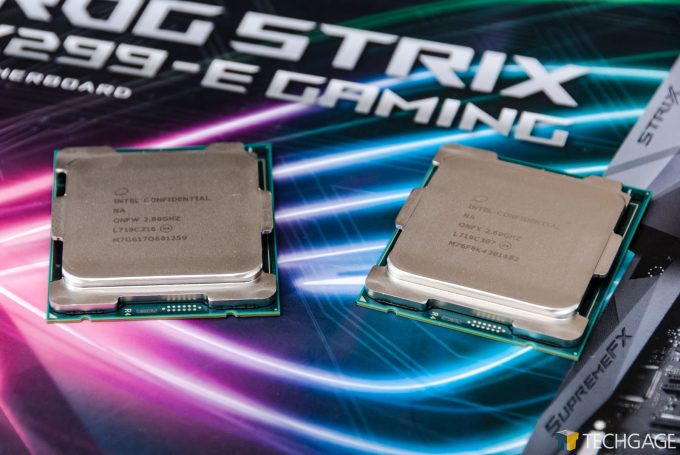- Qualcomm Launches Snapdragon 4 Gen 2 Mobile Platform
- AMD Launches Ryzen PRO 7000 Series Mobile & Desktop Platform
- Intel Launches Sleek Single-Slot Arc Pro A60 Workstation Graphics Card
- NVIDIA Announces Latest Ada Lovelace Additions: GeForce RTX 4060 Ti & RTX 4060
- Maxon Redshift With AMD Radeon GPU Rendering Support Now Available
Overclocking A New CPU? Silicon Lottery Tells You What You Can Expect
Silicon Lottery is a website that sells binned processors for whatever model’s popular, so when people pick one up, they know what to expect for overclocking. In that way, it’s not really a lottery, but it serves a need for those who want to push their hardware to the limit. The website even offers delidding services, in case you already own a CPU you want to exploit the heck out of for that top-end overclock.
The website isn’t only about selling things, but also providing information, such as the entire history of bin success from the company and other sources. Maybe you don’t know how much voltage is generally needed for a certain overclock? This page can help.
I’m not a great overclocker, to the point where I couldn’t even get a stable 5GHz clock on our i7-8700K. As I look at the aforementioned page, though, it seems obvious to me that I wasn’t using enough voltage – even though I am pretty sure temperatures were already less-than-ideal as it was. According to that page, the top 83% of 8700Ks out there should hit 5.00GHz at 1.4V, while only the top 4% will see 5.30GHz at an even higher 1.437V.
On the AMD side, the top 91% 2700Xs have been able to hit 4.10GHz. After that point, though, success plummets. The top 67% can hit 4.15GHz at 1.4V, and the top 32% can hit 4.2GHz at 1.425V. That gain in frequency is not what I’d call a fair trade-off for the increase in voltage, but if you’re all about eking as much performance out of a part as possible, it’s worth at least trying these settings.
Both the i9-7960X and i9-7980XE stand out to me as well on account of their inability to get close to 5GHz. The 18-core in particular hits 4.60GHz at 1.137V on only the top 2% of chips. The top 35% can hit 4.40GHz at 1.112V. Clearly, voltages on that particular chip should be kept modest compared to the smaller chips, because it really doesn’t help.
One of the biggest drawbacks to those big Intel chips is that weak thermal interface material was used, which many believe dramatically holds back top-end performance. The upcoming 9th-gen Core chips will all ship with solder TIM, so it will be quite interesting to look at this list in a year and see how the newer versions of Intel’s biggest chips (eg: 9980XE) have fared.





